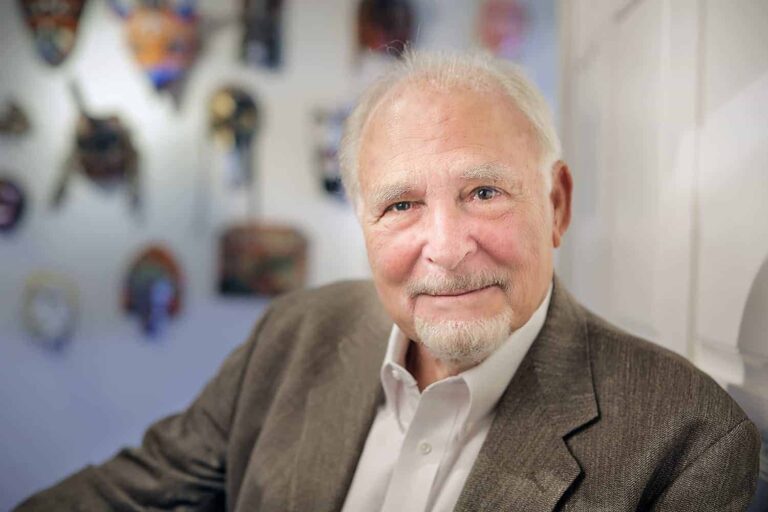Emotion Guilt: 7 Tips for Overcoming Guilt

In this Article
Definition of Guilt
Guilt is defined as culpability especially for imagined offenses or from a sense of inadequacy . Guilt tell us that we have violated one of the most highest standards in our lie and that we have to do something about it.
We can feel guilt when we say “no”, overeat, feel angry, go first , stand up for ourselves, ask for help, don’t meet somebody’s expectations, cheat and so on.
What emotion is guilt?. The emotion of guilt an emotion that you experience because you are convinced you have caused harm. The main message is :”I did wrong”. Guilt leads to shame , depression and anxiety , self-pity, is waiting for punishment.
Have to ever feel bad for something you have done accidentally or intentionally? Deep down in your heart, have you ever experienced a feeling which is expressed as a sense of regret? When you compromise or violate your universal moral standards and accept that sense of responsibility for that violation, that emotion of shame as well as distress is known as guilt. Psychologically, guilt is a conditioned emotion; it can be good or bad. Considering it as a good emotion, the feeling of guilt can lead you to a state of self-acceptance. It can have a healthy impact on your life and relationships when you start to improve yourself, compassion for others and regain your self-esteem.
However, unhealthy guilt may keep you stuck from moving ahead. It causes hatred and outrage, not only for you but towards others, and becomes a tenacious cause of pain. You may hold a conviction where you start to blame yourself over and over again and it accumulates in your unconscious. This kind of guilt is dangerous and leads to self-destruction. One should not confuse guilt with shame, feeling inadequate and inferior leads to a stage of feeling irredeemable which is directly related to shame. It is not a constructive phenomenon and results in a lack of empathy and has some serious personality disorders. As everyone is unique in their way according to their moral compass, they respond to situations in different ways. The guilt can be categorized into two types depending on morality in social contexts.
Appropriate guilt — is all about accepting your actions. The good or bad you have done, you are responsible for this and you own it. This kind of guilt can be natural, normal, and good and it depicts a healthy sense of responsibility. The sense of appropriate guilt is about controlling thoughts rather than being controlled by your thinking. The positive impact of personal ownership and control leads to a balance between your body and mind and heals the connection within.
Irrational guilt— is all about accepting someone else’s actions. We are living in a society of blame and shame where anyone can transfer their blame on you for something that you did not do. At some point, you start to own the actions by others or overestimate the situation. This type of guilt is not natural or normal and can be very damaging if you do not take steps to determine the facts. The excessive amount of irrational guilt is associated with mental illness, depression, and anxiety and hence badly impacts your life and relationships. The best way to overcome the irrational guilt is to step back and imitate what you believe, define the limits to recognize your responsibilities and control of what you truly believe in.
What is pathological guilt?
According to research evidence, guilt is considered an important factor that may increase the danger of obsessive-compulsive disorder (OCD) which results in the person experiencing the feeling of constant dissatisfaction. Pathological guilt is a psychological disorder that leads to a mental state where a person falls into his remorse. It is not healthy guilt at all and harms minds and acts as a constant emotional punishment. Sometimes the pathological guilt is also termed as “traumatic guilt”. A situation where a person suffers from an extreme emotional impact and feels guilty for something he had never done.
Pathological guilt can be very harmful as it ruins your personality little by little, it not only decreases your self-esteem but also makes you feel like a person with no values. To overcome this pathological guilt is very important by considering your beliefs and starting to see things from different points of view. Do not feel shame in seeking help with experts, as in many cases, the guilt is deep-rooted in ourselves and we have to make extra effort to break the chain and positively control our thoughts.
The decoding of the feeling of guilt is important; the untreated guilt makes you the victim of extreme and unknown anger. The feeling of not being loved by everyone makes you live in a hostile environment and you no longer justify the reason for guilt in your life. To avoid the negative consequences, try to evaluate the situation, and understand the causes that produce guilt. Most importantly, no fear of making mistakes and avoid controlling thoughts can lead to a successful healthy life.
How guilt affect your life
Guilt fill your life with negative emotions, and make you feel powerless. Feeling guilt can make you feel useless and worthless, and responsible for everything that goes wrong.
Guilt affects not only your mental health but also your physical health promoting headaches, stomach disorders, and exhaustion. If we try to run from our guilt, immersing ourselves in work or doing something else , we will pay a price. Eventually our bodies will force us to slow down. It also causes inability to relax, irritability, blaming and outburst of temper.
Guilt can make feel responsible for others and do anything to make everyone happy. Guilt immobilize you because of your fears to do something wrong. Guilt interfere in your decision making, your fear of choosing wrong makes you unable to make a decisions in life.
Steps for overcoming Guilt
Regardless of the reason for guilt, it is important to figure out the guilt by reconsidering your decisions and move forward positively. Here are a few tips to overcome your guilt and get a strong grip on it.
- Stop blaming yourself. Mistakes are part of life, as you heard a famous quote by Alexander Pope that “To err is human”. Sometimes we are hard on ourselves for our mistakes and it is very hard for us to forgive ourselves. Mistakes are kind of important for our growth and personality development as human beings. Always remember that you could not always do the right things and make the right decisions. Instead of blaming yourself, embrace your mistakes, and learn from your errors and ultimately forgive yourself. Take it as an experience or a lesson and make yourself perform better next time.
- Show Empathy towards Others. Believe in yourself and focus on forgiveness is not weakness. It is quite important to realize your standard morals and values that genuinely help those around you. Logically, the feeling of guilt may influence your negative impact on others. The sentiment of being guilty reflects in your behavior with others and how to act around others. In the process of being guilty and feeling miserable makes you more demanding, restrained, and unattractive, and eventually, you start hurting your loved ones unknowingly. Take your time to get a deeper perspective to understand others and do the things that will help you feel empathy towards them.
- Identify the triggers. There are many times in our life when rage, misery, or greed leads to a strong feeling of guilt, the guilt of not living up to the certain expectations of others. For example, in your childhood, if you were treated unfairly that may transform into chronic guilt in your present. Even if you have not done anything wrong but you always feel blamed due to past experiences. By having such beliefs, we can easily be exposed to guilt triggers either by words or behavior of others. One can simply lose his self-esteem when being criticized, and harm mental health when emotionally triggered. It is best to be aware of your limitations and take possible actions to avoid exposing yourself to the situations that hurt you.
- Making Peace with Yourself. Self-acceptance is all about recognizing peace within. Stop living in the past and remember that you cannot change your past. Whatever you did wrong in the past, accept it, and take the responsibility for those mistakes. No matter how much you blame yourself, you will not go to correct past mistakes. Be honest about yourself and open about your true feelings, expand your horizons, and try to find new possibilities that may exist. Your thoughts also make you think in a certain way and sometimes generate a stronger feeling of guilt than your mistakes or actions. Therefore, you must try to find peace in yourself but accepting all your imperfections and have compassion for your short-comings.
- For overcoming guilt you have to recognize that you feel guilty. Learn from your experience. Think if your guilt comes from not fulfilling other’s expectations, or you really did something wrong. Or maybe you betray yourself by not doing something you decided to do, etc.
- If it is hard for you to let go of the past there is a great self hypnosis download: Help your mind let go of the past . If the past creeps up on you something needs to change. You can’t change the past but you can change how you feel about it. When you feel more relaxed about things that happened in the past then you get more freedom to enjoy the present and the future. Letting go of the past means being able to imagine things going well for you in the future, and not expecting the rest of your life to be a reflection of past events.
- Try Emotional Freedom Techniques, is a release technique to help to get rid or your negative emotions. All you have to do is apply this technique method. Learn how to acquire those skills. Get started learning how to be positive and happy all the time. Also check Self-hypnosis Techniques for overcoming guilt. It helps to relax and control your mind and thoughts. You replace negative emotions with positive emotions and thoughts.
Conclusion
Guilt provides an opportunity for growth. You can learn a lot from the past and your childhood, about your sense of worthiness and your pleasing behaviors. The key element for overcoming guilt is self-forgiveness. Forgive yourself and create more self-love and acceptance and less anxiety in your life.
Overall, guilt is an emotion that comes naturally and you can escape from this. Whenever the feeling of guilt hits, you should start to seek the ways coming out of it. Keeping in the state of guilt can paralyze your thoughts and withhold you from taking any step towards improvement. Sometimes the guilt is sudden or chronic, whatever the reason for guilt, it needs to be fixed. Most of the time, we are not considering things in the right context. Open up your feelings and thoughts with your loved ones can resolve the big problems. Maybe someone else’s perspective or opinion can lead you on the right path by considering the situation from a different point of view. Being optimistic also greatly helps you positively see things and you start looking for solutions for the problems. Building your inner strength can overcome the fears of guilt to start making better decisions.
Above all, remember that there will be days when you feel great and productive and there are some days when you feel miserable and down. Do not let worries dominate you in any way and feel you are sad and incomplete. Stop pushing yourself to be a people pleaser just by thinking that you are not doing enough for them. Try to come out of the feeling of guilt and shame and reach out for satisfaction by helping others. Helping others to overcome their feelings of guilt also shapes your life in the right direction and aids you to work on your fears of guilt and shame
Do you carry feelings of guilt for something you did or fail to do?. You acted according to your level of consciousness or rather unconsciousness at that time. Guilt is another attempt to the ego to create an identity. The ego personalizes it and says: I did that, so you carry a mental image of yourself as that. Eckhart Tolle. From Stillness Speaks






